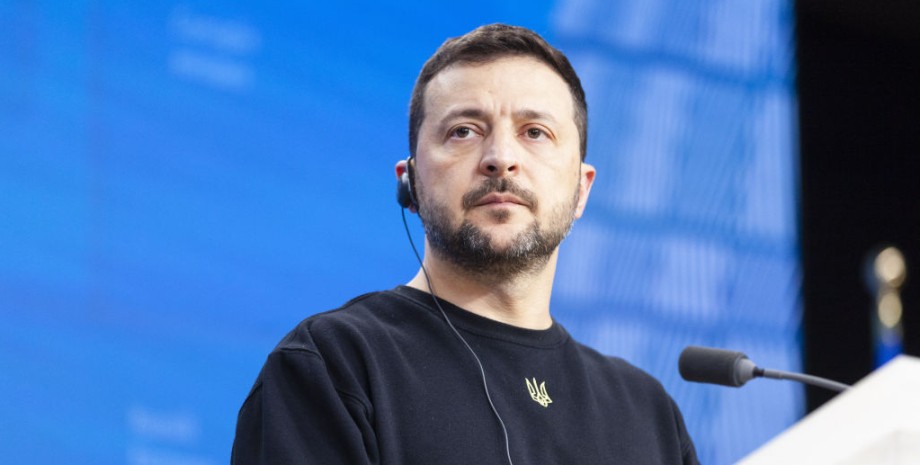
In particular, answering the question of whether the involvement of the DPRK can stimulate European countries to send their troops, not just weapons, to Ukraine, the President noted: "Not sure, honestly. As far as I know, everyone treats it skeptical and very cautious ". Separately, the head of state emphasized that official Kiev never insisted on this idea and did not discuss it in detail. "It is very dangerous. When you do not have such a decision from leaders, from societies, etc.
, it is very dangerous to break this topic. Because you can lose any other support . . . We cannot risk loss of support we already have,"- Zelensky summed up. Meanwhile, the Pentagon confirmed that the North Korean military arrived in Russia. According to the latest assessment of the United States, Pyongyang sent about 10,000 soldiers to Russia for exercises and participation in hostilities against Ukraine.
At the same time, CNN sources believe that some of the North Korean military can already be in Ukraine. The sources of the TV channel point out that most North Korean military is a special purpose forces, and "to evaluate their efficiency on the battlefield is quite difficult.
" "Allies and partners around the world are watching, consulting and actively dividing their intelligence on this issue, as it affects the safety of the Euro-Atlantic and Indo-Pacific regions and not only," said CNN one of the unnamed Western officials. Instead, Lithuanian President Gitanas Nauseda has openly stated that the indecision of the Allies of Ukraine "would lead to escalation, not the other way around.
" "The North Korean troops assist Russia in its war against Ukraine, so NATO has to respond, giving Ukraine everything necessary to achieve victory," the Lithuanian leader on the Twitter network wrote.
Noting that President Zelensky, speaking of the likely reaction of European allies to send the DPRK troops "quite accurately assessed the situation", political scientist Dmitry Levus said in conversation with focus: "Except for a completely impotent response in the USA and Europe, we see in addition. The campaign around this issue. The green of Zelensky has always emphasized that yes, we need help, but no one should fight us directly on the battlefield.
" Recalling Emmanuel Macron's statements about the likely departure of European troops to Ukraine, the expert said: "Macron format is not actually not about fighting for Ukraine. In fact, it was about European countries to make the Defense Forces of Ukraine more effectively. This is really possible, although we see, even the fact of involving the DPRK troops has not become the stimulus that accelerates this decision. ), etc.
) will only be real when a certain success of the Armed Forces of Ukraine (Armed Forces), and not when there is some uncertainty on the battlefield. Dialogue with those partners who either fear or doubt. " According to Dmitry Levus, even only the statements of the Eurovoli, including Macron on the involvement of allies, "certainly and uniquely" affect the activity of the Russian Federation.
"All these endless games with an effort to avoid escalation by the aggressor, in fact, lead to the fact that escalation is happening, and in a few stages higher, since the Russian Federation uses the moment The Allies would prompt the Russian Federation to act much more cautiously. The political scientist compares this thematic case with the issue of giving Ukraine an invitation to NATO.
"In fact, the invitation in itself does not bring our country closer to the North Atlantic Alliance, but at the same time is a kind of signal for Russia that Kiev has gone beyond the purely hypothetical sphere of influence Ukraine would have forced the Russian Federation to fuss and look for other options, not demonstratively invite troops of the DPRK, " - argues Dmitry Levus.
Political scientist Maxim Jigun, in conversation with focus, focus on the focus: "It should be noted that even those statements that at one time heard from President Macron and recently sounded from the France's defense minister Sebastian Lecorton about the departure of troops. The detachments that will be fighting in the battlefield with the battlefields.
In the current environment, the expert says, to talk about the involvement of the European military in the Russian-Ukrainian war is suicide for Euro politicians: "Despite the fact that people live in the European Union relatively near us, this war is absolutely alien and minor. Some military contingent from France, Germany or some other country puts a cross in the future politicians who declare it. .
First, German society has post-war injuries from the Second World War and is in general skeptical of Ukraine's support, and secondly, in the election next year, Scholt will struggle to keep power, so he is already drawing talks with Putin now And closing the topic of war in the intermediate version.
" Determining that the theme of the war is "extremely unpleasant" for any country that can find itself, the political scientist emphasized: "I am very skeptical about the likelihood of sending partners to Ukraine. Fearing to confuse the fragile level of support of Western societies, which is at the same time President Zelensky says, as Europeans are delayed with help, the North Korean troops are already trampling Ukrainian land and are ready to join.
Decisive than our partners who are passively expecting the gradual occupation of Moldova, Georgia, Ukraine and other states. Assessing the position of partners in general, the political scientist emphasized: "Political leadership is not about coming from high stands from the pleasant ears of citizens with spices. This is, first of all, about managerial positions, so people who hug them must properly decide crisis and do not allowed the worst scenarios of development.










All rights reserved IN-Ukraine.info - 2022